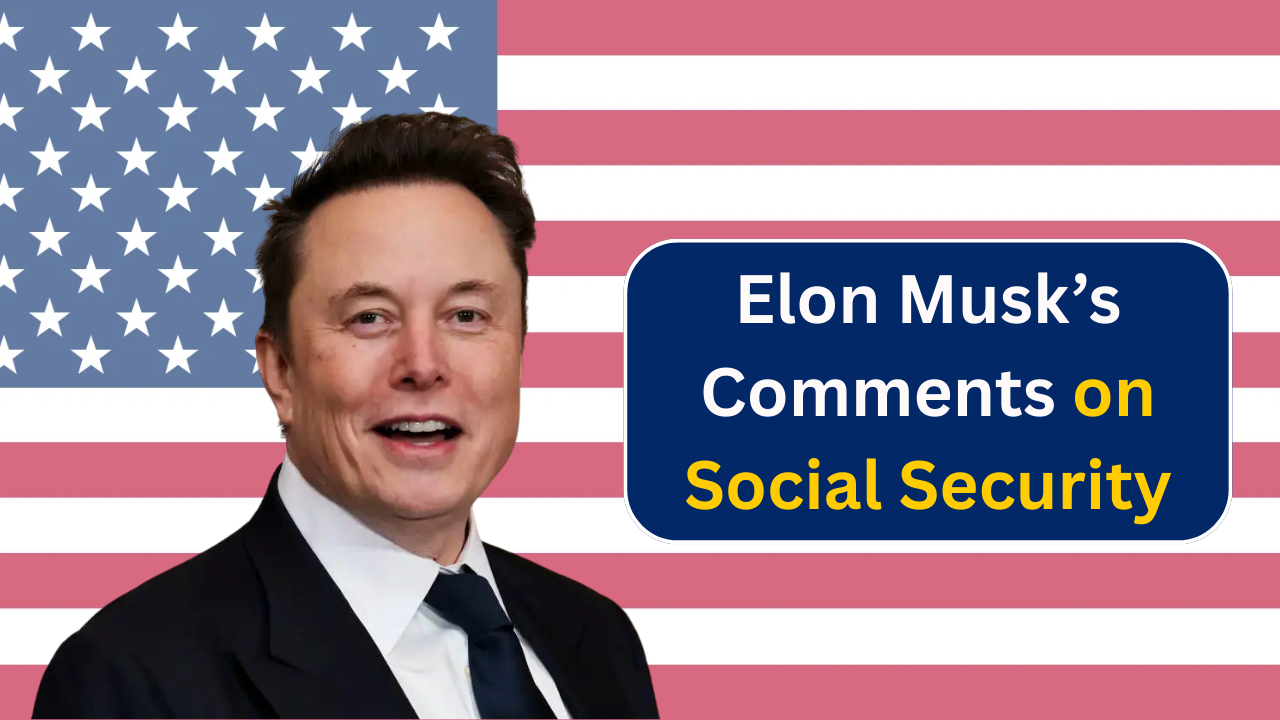Billionaire Elon Musk has become known for making bold statements on various topics, ranging from artificial intelligence to the future of space exploration.
However, his recent comments about immigrants and government entitlement programs, specifically Medicare and Social Security, have sparked a reaction from experts in the field of economics.
Musk, during an interview on Fox Business Network, discussed his view on entitlement spending, suggesting that a significant portion of the U.S. budget could be saved by eliminating waste and fraud in programs like Medicare and Social Security.
In his remarks, Musk went further, making a controversial claim about the link between entitlement programs and immigration.
He argued that these programs, particularly Medicare and Social Security, act as a financial incentive for unauthorized immigrants to come to the U.S., drawing them in with promises of benefits.
According to Musk, this creates a “money magnet” that encourages illegal immigration, which he claims is beneficial to Democrats who rely on these immigrants as voters.
Musk’s words did not go unnoticed. Geoffrey Sanzenbacher, a research fellow at the Center for Retirement Research and economics professor at Boston College, published a formal response, seeking to address the inaccuracies and misconceptions presented by Musk.
Sanzenbacher, while acknowledging that he typically avoids participating in day-to-day political debates, explained why he felt compelled to challenge Musk’s claims.
He found Musk’s assertion that entitlement programs attract illegal immigrants, who Musk suggested are being “paid” to vote, problematic and misleading.
In his response, Sanzenbacher dissected Musk’s claims and clarified key points, noting that unauthorized immigrants are, in fact, not eligible for Medicare or Social Security benefits, contrary to Musk’s assertion. Furthermore, Sanzenbacher explained that the financial contributions immigrants make through payroll taxes bolster the sustainability of these programs.
Unauthorized Immigrants and Entitlement Programs
Sanzenbacher emphasized the financial contributions that unauthorized immigrants make to Social Security and Medicare, even though they do not receive benefits.
He pointed out that these immigrants contribute to the programs via payroll taxes, a mechanism that helps support the funds, particularly as the U.S. population ages.
“To the extent that unauthorized immigrants participate in these programs, they do so on the revenue side,” Sanzenbacher wrote. “In short, mass deportations will hurt the programs’ trust funds, not help them.”
This point is essential when understanding the role of immigrants in supporting Medicare and Social Security. While they may not receive benefits themselves, the taxes they pay are crucial to maintaining the financial stability of these entitlement programs.
Sanzenbacher also clarified that unauthorized immigrants cannot legally access Medicare or Social Security retirement benefits, dispelling the myth that these programs are being exploited by illegal immigrants.
Impact of Immigration on Medicare and Social Security

The second area of concern that Sanzenbacher addressed was the impact of expanding legal immigration on the financial stability of Social Security and Medicare.
Musk’s comments suggested that expanding authorized immigration would place undue strain on these programs, a claim Sanzenbacher sought to correct with evidence-based analysis.
Sanzenbacher explained that immigrants tend to be net contributors to Social Security and Medicare, paying into the system without receiving equivalent benefits.
In particular, younger immigrants, who are often employed in the workforce, contribute to the programs at a time when the system is facing challenges due to the aging Baby Boomer generation.
On the Medicare side, immigrants typically spend less on healthcare compared to U.S.-born citizens, making them a potential asset to the system’s long-term viability. For Social Security, the contribution of younger workers—many of whom are immigrants—helps ensure that the system remains funded as the country’s older population retires.
“Immigrants are often younger people who work,” Sanzenbacher said. “This fact means that new immigrants contribute to the system at exactly the time we need it, as the baby boomers age.”
While the long-term impact of immigration on entitlement programs is complex, research suggests that immigrants play a significant role in supporting the financial health of these programs, not draining them as Musk suggested.
The Role of Immigration Policy in Shaping Economic Outcomes
Sanzenbacher is careful to acknowledge that immigration policy is a nuanced issue, with both positive and negative consequences for various sectors of the economy.
He recognizes that there are short-term costs associated with immigration, such as the need for infrastructure development and educational services for newcomers.
These costs must be balanced with the long-term economic benefits of immigration, including the contributions that immigrants make to the workforce and the entitlement programs.
However, Sanzenbacher stresses that starting the immigration debate from the false premise that immigrants are exploiting entitlement programs is counterproductive. Instead, policymakers should focus on evidence-based solutions that address labor shortages, economic growth, and fair distribution of resources.
“If anything, these programs take advantage of them,” Sanzenbacher concluded, pointing out that the U.S. gains more from immigration through contributions to Social Security and Medicare than it loses in short-term costs.
Conclusion: Rethinking Immigration and Entitlement Programs
Elon Musk’s controversial comments have opened up a broader discussion on the intersection of immigration and entitlement programs in the United States.
While Musk’s viewpoint may have been provocative, it overlooks the crucial role that immigrants play in supporting these programs.
The facts presented by experts like Geoffrey Sanzenbacher highlight the need for a more informed and evidence-based discussion on how immigration can contribute to, rather than drain, the U.S. economy and entitlement systems.
The debate is far from settled, but one thing is clear: when it comes to Social Security, Medicare, and immigration, the facts must guide policy discussions, not misconceptions or misinformation.

Deepak Grover is a dedicated content writer at OTE News, specializing in government affairs, public policy, and current events. With a keen eye for detail and a passion for factual reporting, he ensures readers receive accurate and insightful news. Deepak holds a degree in Political Science and has experience in research-driven journalism.
When not writing, he enjoys reading historical books, exploring hiking trails, and staying updated with global political trends. His commitment to ethical journalism makes him a trusted voice at OTE News.




